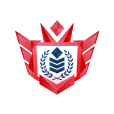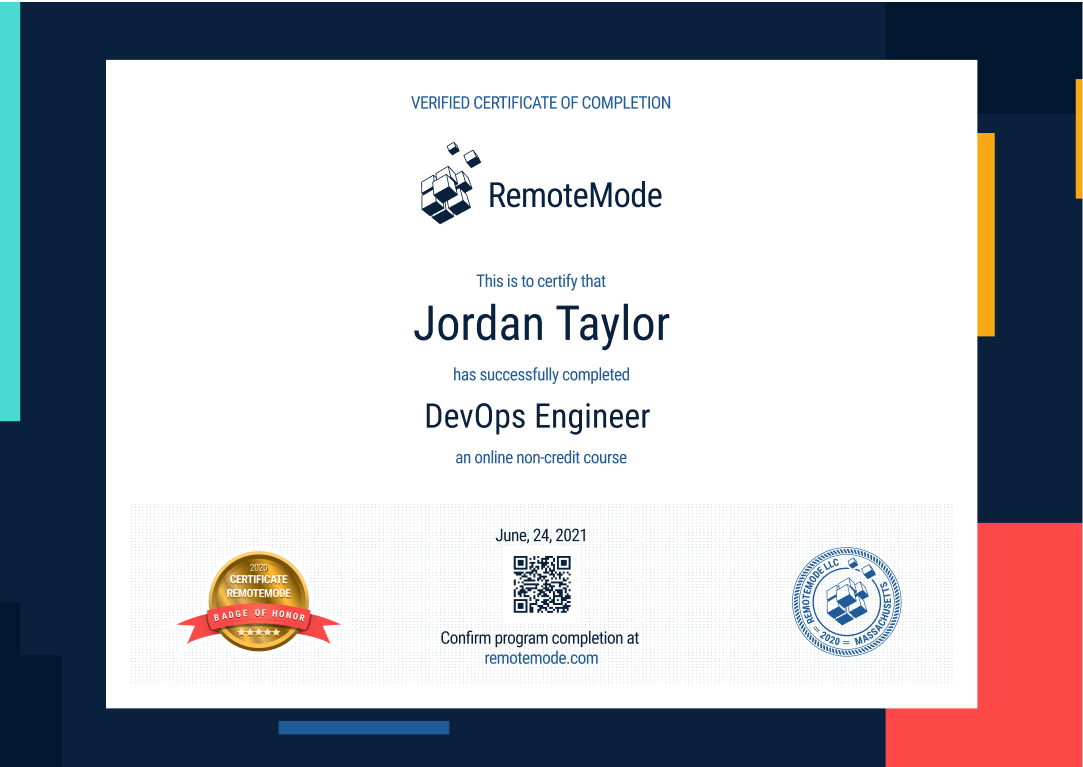Become a SQL DBA Developer
Optimize and maintain the SQL databases and create the applications to interact with them. Start to create tables and code stored procedures, functions, and queries.
- 5-month program
- 173 lessons
- 5 hr/week
- 113 hours



Mission Forecast for SQL DBA Developer
Landing Zone
Companies focused on results and sustained growth realize the importance of data in every sphere of business, from consumer habits to production quality. Well-planned and managed databases become the key point for a successful business. That is why the demand for SQL DBA-Developers grows. In the USA the 132,000 Database Administrator jobs were opened in 2020. Job growth will increase to 13% by 2026.
Mission Objective (Who’s Hiring Right Now)
SQL DBA Developer Overview
Almost every 500 companies work with SQL databases to manage the corporate data and Over 150,000 companies install Microsoft SQL Server for this purpose. Working as a SQL Database Administrator and Developer, your responsibilities will be:
- + 5 Month Courses
- + 5 Hours/Week Self-study
- + 173 On-demand Lessons
- + 113 Hours of training materials
- + Certificate
- + Practise on Topical Real-life Project
- Cooperate with a team of system developers.
- Plan and design database structures to store data efficiently.
- Code queries to access records in tables.
- Guarantee the database integrity.
- Develop functions and programs to update data.
- Find and solve data problems.
Prepare for Liftoff
SQL 2014 Developer
This course details the many facets that an individual wanting to assume the role of SQL 2014 Developer should know.
Who is this course for?
The course had been created for SQL developers wanting to further their knowledge in the 2014 iteration of the server.
Course Prerequisites and Skills to be developed
Prerequisites
- It is desirable for those wanting to assume the role to have a Bachelor's degree in any of the following disciplines or any related field:
- Computer Science
- Computer Engineering
- Information technology
- Management Information Systems
- They should possess at least a year's worth of experience as an SQL Developer, especially if the learners would want to apply in a non-junior post
- As with any SQL developer post, the learners should have a strong grasp of SQL Programming; hands-on experience is, of course, desirable.
- Working knowledge of Microsoft SQL Server
- Preliminary knowledge of how SQL establishes security
Knowledge and Skills to be acquired and developed
- The learners are expected to develop the capability of writing Select queries with progressive complexity
- They would be given greater knowledge on database programming through SQL statements
- The capability of administering modifications to the schema of the database. This includes the addition, deletion, changing of tables, and creation of relationships
SQL 2014 Developer Overview
SQL 2014 Developer, Part 01 of 13: Views
This lesson teaches the learners of this course how to create views in an SQL server. The lesson discusses how this would be done through either the SQL Server Management Studio or the Transact-SQL.
The learners would be made to understand that Views are used to:
- Focus and simplify each user's perception of the database
- Function as a security tool
- Provide a backward compatible interface
SQL 2014 Developer, Part 02 of 13: Stored Procedures
This lesson discusses what a Stored Procedure is in SQL development.
Through this lesson, the learners would understand that Stored Procedures is a group of T-SQL statements. The lesson then walks learners through the different types of Stored Procedures, the advantages that developers are in for upon use, and all related tasks.
SQL 2014 Developer, Part 03 of 13: Functions
This lesson details the different types of SQL functions namely the Aggregate functions, Analytic functions, Ranking functions, Rowset functions, and Scalar functions.
SQL 2014 Developer, Part 04 of 13: Transactions
This lesson discusses what Transactions are in SQL development. Through this lesson, the learners would understand that through transactions, users would be provided with efficient work management.
SQL 2014 Developer, Part 05 of 13: Common Language Runtime
This lesson discusses what Common Language Runtime (CLR) is and how it should be used so that users would be enabled to implement functions through .NET languages.
SQL 2014 Developer, Part 06 of 13: Advanced SQL CLR.
This lesson covers the advanced SQL Server topics specifically CLR.
Through this lesson, learners would understand that the SQL CLR integration is not default in the SQL Server.
SQL 2014 Developer, Part 07 of 13: Design and Deployment
This lesson discusses how the learner would be able to use SQL to design and deploy data. This lesson expounds on how users can control the design environment and how they can administer importing and exporting data.
SQL 2014 Developer, Part 08 of 13: Advanced T-SQL Queries
This lesson provides learners with the understanding of logical query understand and the data structures endemic to the SQL Server.
This lesson also provides learners with the ability to analyze and tune query performance and its execution plans.
SQL 2014 Developer, Part 09 of 13: Advanced Data Types
This lesson details the advanced data types that the SQL Server uses. This lesson goes into detail the two data types, namely Geography and Geometry and how these are supposed to function through the T-SQL code.
The lesson also explains how one should work with Spatial data in an SQL Server.
SQL 2014 Developer, Part 10 of 13: Partitions
This lesson goes into the details of creating queries and partition management. The lesson also discusses structures of complex data.
The lesson provides understanding of complex querying and how these are implemented. The learners would also be given the idea how to work with XML data types and the scheme that come with it.
SQL 2014 Developer, Part 11 of 13: Complex Querying
This lesson discusses how users should go about writing complex queries through SQL and the functions that are used to rank data that have been grouped. The learners would be walked through the process of writing correlated subqueries alongside the analysis of CTE.
SQL 2014 Developer, Part 12 of 13: Coding Techniques
This lesson introduces the learners to the numerous concepts of coding techniques and the recommended structure that should be used so as to effectively work with multiple data. This lesson also goes into the many different ways to go about improving Queries and the processes that can be done to work with Complex Queries.
SQL 2014 Developer, Part 13 of 13: Working with XML
This lesson introduces learners to the XML data type and how to work with such alongside the XML schema collections. This lesson also details the best practices for XML data querying.

Mission control
- Study at the course with experienced mentors and tutors
- Take part in Virtual lab projects to upgrade your portfolio
- Monitor your results at Dashboard and compete with other students
- Use Activity Tracking Log to control your progress
- Take a step closer to your job of dream with interview prep and upgrading SV
In collaboration with
Chart your trajectory (173 video 54 hours)
Certificate of Completion
- Certification recognized by industry companies
- Real project from virtual labs
- The program built on 100% self-study
- Course videos and subtitles
- Practical quizzes
- Mentored by high-class specialists

Grow into a SQL DBA Developer
Optimize and maintain the SQL databases and create the applications to interact with them.
Start to create tables and code stored procedures, functions, and queries.
Learning program
- 5 months duration, 5 hours per week
- 173 lessons, 113 hours
- 100 % flexible timetable
Virtual lab
- Real projects
- GitHub portfolio
- Experts feedback
Career Services
- Interview prep
- SV writing
- Filling LinkedIn profile
Request More Information
View pricing and financing options